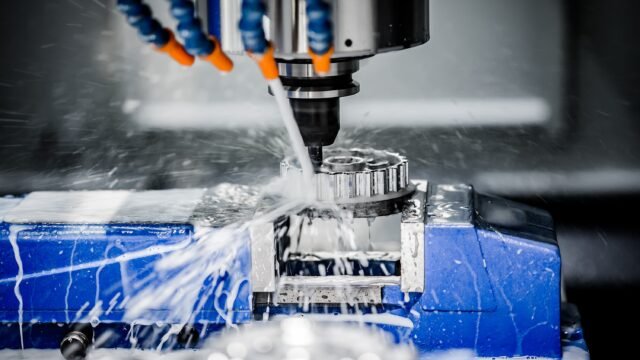In today’s fast-paced industrial world, precision and efficiency are the keys to success. CNC (Computer Numerical Control) machining has emerged as a transformative technology that delivers both. By combining advanced computer systems with cutting-edge manufacturing tools, CNC machining ensures accuracy, speed, and reliability in producing complex parts. From aerospace to medical industries, this innovation has revolutionized modern production and is paving the way for a smarter, more automated future.
What is CNC Machining?
CNC machining is a manufacturing process where pre-programmed computer software controls the movement of tools and machinery. Instead of relying on manual operation, CNC machines work based on digital instructions, ensuring consistent accuracy and eliminating human error. This process is widely used to cut, drill, mill, and shape materials such as metals, plastics, and composites with remarkable precision.
How Does CNC Machining Work?
The process begins with a CAD (Computer-Aided Design) model, which represents the part to be manufactured. This design is then converted into a CNC program using CAM (Computer-Aided Manufacturing) software. The program provides detailed instructions to the machine, such as tool paths, cutting speed, and depth of cut. Once the machine receives these commands, it performs the operations automatically, producing parts that meet exact specifications.
Key Features of CNC Machining
1. Unmatched Accuracy
CNC machines can achieve tolerances within microns, making them ideal for industries where precision is critical.
2. High Speed and Efficiency
Unlike manual machining, CNC systems can operate continuously without fatigue, increasing production rates and reducing downtime.
3. Complex Design Capability
CNC machines can create intricate and complex shapes that would be impossible or extremely difficult to achieve manually.
4. Automation and Repeatability
Every part produced is identical to the previous one, ensuring consistency and quality in mass production.
5. Versatility
CNC technology is suitable for various materials—metals, plastics, wood, and composites—making it an all-purpose solution for manufacturing.
Applications of CNC Machining in Modern Industries
CNC machining is a backbone technology for numerous sectors due to its versatility and reliability:
CNC Machining vs Traditional Machining
The biggest difference between CNC and traditional machining is automation. Manual machining relies on human operators, which can lead to errors and inconsistency. CNC machining, on the other hand, is fully automated, reducing labor costs and improving precision. Additionally, CNC machines can handle complex geometries and repeat large production runs with zero variation—something manual methods struggle to achieve.
Why CNC Machining is the Future of Manufacturing
The demand for smart, efficient, and accurate production processes is higher than ever. CNC machining is at the core of this transformation because it supports:
- Industry 4.0 Integration: CNC machines are being connected to IoT networks for real-time monitoring and predictive maintenance.
- AI-Powered Optimization: Artificial intelligence is being integrated into CNC systems for automatic error correction and process improvement.
- Sustainability: CNC technology reduces material waste and energy consumption, making manufacturing more eco-friendly.
As industries move toward smart factories, CNC machining will remain a key technology, ensuring that manufacturing processes are faster, more precise, and highly automated.
Conclusion
CNC machining is not just an industrial tool—it is the foundation of future manufacturing. Its ability to deliver precision, speed, and innovation makes it indispensable for companies that want to stay competitive in an increasingly automated world. From improving production efficiency to enabling complex designs, CNC machining has proven to be a game-changer. As technology continues to evolve, CNC will remain at the heart of smarter, more sustainable manufacturing systems.







